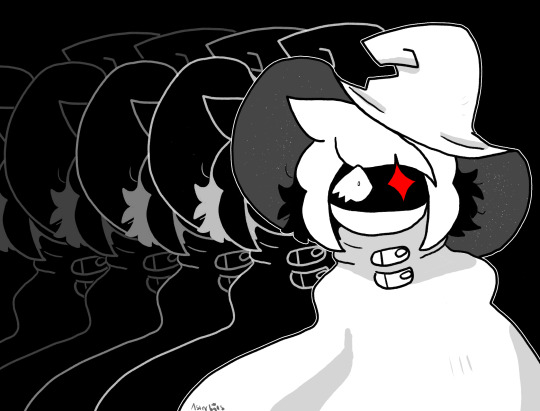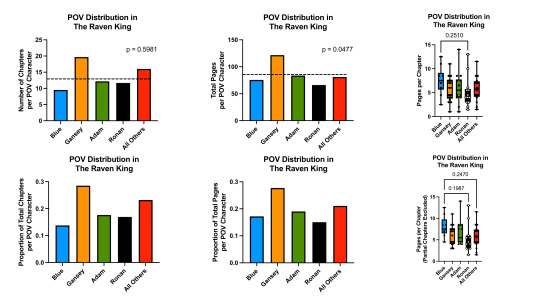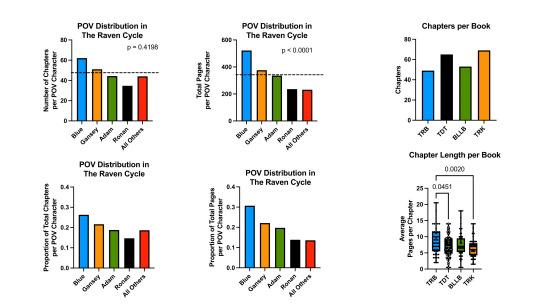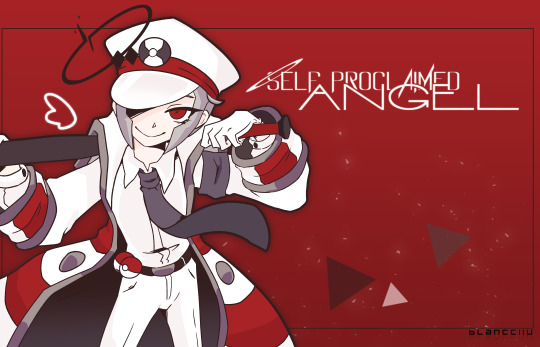#self-parody
Explore tagged Tumblr posts
Text
When there's grammatical ambiguity in what you could translate something into English as why do people always pick a bad option when they could pick a good one instead?
7 notes
·
View notes
Text
Odd poem: Parody of a Self-Parody of a Self-Parody: Melissa Balmain, 'How Unpleasant to Meet Mrs. Hughes'
From the files of Sylvia PlathHow unpleasant to meet Mrs. Hughes, Who’s so thoroughly, willfully odd. It’s a wonder Ted happened to choose Such a creature. (He’s rather a god.) Her lipstick is always a mess. She’ll go on for an hour or three About Nazis or bees—as you’d guess, This does not get her asked out to tea. Her headbands aren’t quite comme il faut. (They’re a match for her queer Yankee…
#Edward Lear#Melissa Balmain#Mezzo Cammin#parody#self-parody#Spectator#Sylvia Plath#T.S. Eliot#Ted Hughes
0 notes
Text
They don’t even attempt to assassinate US politicians anymore. You notice that? Not since the anthrax scare back for… who was it, Barack? And even that… pathetic. This new generation has no respect for an honest hitman. I’m not sure this new generation has any honest hitman - you see that shit with Boeing? Sloppy, fucking disgraceful - you kill the whistleblowers before they get halfway to a lawsuit. What kind of fucking amateur is doing faked suicides the night before testimony? Goddamn greenhorns. Back in my day someone tried to shoot Ronald Reagan in broad daylight. There used to be bomb threats to Congress. I took out a few union leaders in the utilities sector myself. Today’s generation? Won’t even threaten to throw a punch - not even over on that - what’s it now, ‘X’? They got no guts. None! And they don’t even have poor impulse control to boot! Too much of that - that panopticon anxiety bullshit. “Oh what if I get a called out post???” People used to send the president letters full of bioweapons. In the mail! Today’s generation? Not a chance. All because of woke.
#ra speaks#personal#JOKING.#this is a joke this is a parody of right wing rants regarding social phenomenon they believe to be oppressed by left leaning politics.#but within the perspective of an old fictional hitman.#this is a joke tangentially referencing my fictional hitmen from a fictional story in which no harm comes to career politicians#obviously but also if this gets me on a list o7#fbi agent in my phone I’m a disabled autistic dyke with zero engineering or chemistry background#my skills are best applied to…idk sabatoging national forest harvest regimes? but I’m not doing that they’re neglected enough as is.#edit: oops this is getting notes o/ hiiiii cia agent reading this post <3 a union leader my dad worked w got fucking assassinated#by Pinkertons and y’all didn’t do shit. I hope you have visions of hell and become a nomadic hermit self flagellating in the woods#edit 2: ooooooh there was a pres debate last night. that’s why people care about my two week old joke hitman post. was wondering why.
3K notes
·
View notes
Text
It's always been intriguing to me that, even when Elizabeth hates Darcy and thinks he's genuinely a monstrous, predatory human being, she does not ever perceive him as sexually predatory. In fact, literally no one in the novel suggests or believes he is sexually dangerous at any point. There's not the slightest hint of that as a factor in the rumors surrounding him, even though eighteenth-century fiction writers very often linked masculine villainy to a possibility of sexual predation in the subtext or just text*. Austen herself does this over and over when it comes to the true villains of her novels.
Even as a supposed villain, though, Darcy is broadly understood to be predatory and callous towards men who are weaker than him in status, power, and personality—with no real hint of sexual threat about it at all (certainly none towards women). Darcy's "villainy" is overwhelmingly about abusing his socioeconomic power over other men, like Wickham and Bingley. This can have secondhand effects on women's lives, but as collateral damage. Nobody thinks he's targeting women.
In addition, Elizabeth's interpretations of Darcy in the first half of the book tend to involve associating him with relatively prestigious women by contrast to the men in his life (he's seen as extremely dissimilar from his male friends and, as a villain, from his father). So Elizabeth understands Darcy-as-villain not in terms of the popular, often very sexualized images of masculine villainy at the time, but in terms of rich women she personally despises like Caroline Bingley and Lady Catherine de Bourgh (and even Georgiana Darcy; Elizabeth assumes a lot about Georgiana in service of her hatred of Darcy before ever meeting her).
The only people in Elizabeth's own community who side with Darcy at this time are, interestingly, both women, and likely the highest-status unmarried women in her community: Charlotte Lucas and Jane Bennet. Both have some temperamental affinities with Darcy, and while it's not clear if he recognizes this, he quietly approves of them without even knowing they've been sticking up for him behind the scenes.
This concept of Darcy-as-villain is not just Elizabeth's, either. Darcy is never seen by anyone as a sexual threat no matter how "bad" he's supposed to be. No one is concerned about any danger he might pose to their daughters or sisters. Kitty is afraid of him, but because she's easily intimidated rather than any sense of actual peril. Even another man, Mr Bennet, seems genuinely surprised to discover late in the novel that Darcy experiences attraction to anything other than his own ego.
I was thinking about this because of how often the concept of Darcy as an anti-hero before Elizabeth "fixes him" seems caught up in a hypermasculine, sexually dangerous, bad boy image of him that even people who actively hate him in the novel never subscribe to or remotely imply. Wickham doesn't suggest anything of the kind, Elizabeth doesn't, the various gossips of Meryton don't, Mr Bennet and the Gardiners don't, nobody does. If anything, he's perceived as cold and sexless.
Wickham in particular defines Darcy's villainy in opposition to the patriarchal ideal his father represented. Wickham's version of their history works to link Darcy to Lady Anne, Lady Catherine (primarily), and Georgiana rather than any kind of masculine sexuality. This version of Darcy is a villain who colludes with unsympathetic high-status women to harm men of less power than themselves, but villain!Darcy poses no direct threat to women of any kind.
It's always seemed to me that there's a very strong tendency among fans and academics to frame Darcy as this ultra-gendered figure with some kind of sexual menace going on, textually or subtextually. He's so often understood entirely in terms of masculinity and sexual desire, with his flaws closely tied to both (whether those flaws are his real ones, exaggerated, or entirely manufactured). Yet that doesn't seem to be his vibe to other characters in the story. There's a level at which he does not register to other characters as highly masculine in his affiliations, highly sexual, or in general as at all unsafe** to be around, even when they think he's a monster. And I kind of feel like this makes the revelations of his actual decency all along and his full-on heroism later easier to accept in the end.
------------
*The incompetently awful villain(?) in Sanditon, for instance, imagines himself another Lovelace (a reference to the famous rapist-villain of Samuel Richardson's Clarissa). Evelina's sheltered education and lack of protectors makes her vulnerable to sexual exploitation in Frances Burney's Evelina, though she ultimately manages to avoid it. There's frequently an element of sexual predation in Gothic novels even of very different kinds (e.g. Ann Radcliffe's The Mysteries of Udolpho and Matthew Lewis's The Monk both lean into this, in their wildly dissimilar styles). William Godwin's novel Caleb Williams, a book mostly about the destructive evils of class hierarchies and landowning classes specifically, depicts the mutual obsession of the genteel villain Falkland and working class hero Caleb in notoriously homoerotic terms (Godwin himself added a preface in 1832 saying, "Falkland was my Bluebeard, who had perpetrated atrocious crimes ... Caleb Williams was the wife"). This list could go on for a very long time.
**Darcy is also not usually perceived by other characters as a particularly sexual, highly masculine person in a safe way, either, even once his true character is known. Elizabeth emphasizes the resilience of Darcy's love for her more than the passionate intensity they both evidently feel; in the later book, she does sometimes makes assumptions about his true feelings or intentions based on his gender, but these assumptions are pretty much invariably shown to be wrong. In general the cast is completely oblivious to the attraction he does feel; even Charlotte, who wonders about something in that quarter, ends up doubting her own suspicions and wonders if he's just very absent-minded.
The novel emphasizes that he is physically attractive, but it goes to pains to distinguish this from Wickham's sex appeal or the charisma of a Bingley or Fitzwilliam. Mr Bennet (as mentioned above) seems to have assumed Darcy is functionally asexual, insofar as he has a concept of that. Most of the fandom-beloved moments in which Darcy is framed as highly sexual, or where he himself is sexualized for the audience, are very significantly changed in adaptation or just invented altogether for the adaptations they appear in. Darcy watching Elizabeth after his bath in the 1995 is invented for that version, him snapping at Elizabeth in their debates out of UST is a persistent change from his smiling banter with her in the book, the fencing to purge his feelings is invented, the pond swim/wet shirt is invented. In the 2005 P&P, the instant reaction to Elizabeth is invented, the hand flex of repressed passion is invented, the Netherfield Ball dance as anything but an exercise in mutual frustration is invented, the near-kiss after the proposal in invented, etc. And in those as well, he's never presented as sexually predatory, not even as a "villain."
#self-indulgently long tangents even for me but i had Thoughts!#i almost appended a third footnote to the second footnote. rip#anghraine babbles#long post#fitzwilliam darcy#lady anne blogging#austen blogging#austen fanwank#ivory tower blogging#anghraine's meta#eighteenth century blogging#gender blogging#i do think it's interesting that associating his flaws with lady catherine's is honestly fair - she comes to wonder about this later#but lbr that is totally understandable! lady catherine is the awful parody version of him!#but the times when elizabeth's assumptions are highly inflected by Yes All Men Actually generalizations she's utterly wrong#it's not some horrible misdeed but it's not really fair#not because she's oppressing him (lmao) but because people don't work that way#not saying that p&p is some huge blow against gender essentialism but i do think it's FAR less friendly to it than its fans are
476 notes
·
View notes
Text
How about the system fucking up Shen Yuan's transmigration into Shen Qingqiu's body and now Shen Jiu is basically Quirinus Quirrell with Shen Yuan playing the role of Voldemort?
I don't know what would be worse - Shen Jiu losing all his hair because there's another face on the back of his head or Shen Yuan getting a mouthful of hair all the time as Shen Jiu does his hair up in fancier hairstyles and larger ornaments to hide Shen Yuan from everyone.
#svsss#svsss ideas#svsss au#shen qingqiu#mxtx#scum villain's self saving system#shen jiu#shen yuan#system messed up and now shen yuan is on the back of shen jiu's head like some xianxia parody version of voldemort on quirrell's head AU
181 notes
·
View notes
Text

take me up, cast me away
#I did this instead of packing up my apartment#but that's a problem for my future self#this started out as a parody piece on caesar by the oh hellos and ended as a tarot card-ish thing#ash posts#ash's art#bbc merlin#merlin emrys#excalibur#fanart#merlin fanart#art#arthur pendragon#tarot
206 notes
·
View notes
Text

don't think about it
#in stars and time#isat#siffrin#isat siffrin#isat spoilers#thinking about siffrin being the only one to remember the loops while being defined by their amnesia#how sometimes the loop number skips forwards bc siffrin cant keep track. and he cant remember specific loops well#so even though it all lingers and drags him down he cant even name it. just like they cant name their country.#and it all just adds to their disassociation and self loathing#because its all on them to remember and they cant even do that#as someone whose memory has been getting worse and worse bc of adhd and stress and maybeee covid this game really resonated with me#literally sat on this for a while trying to quote something abt memory from the game but couldnt remember anything. beyond parody
209 notes
·
View notes
Text


Guardian of the Earth or That's No MOON?!
122 notes
·
View notes
Text

a sequel to this where she's now... an orange... /silly
#☀️mayo's doodle#abby cliffwood#a parody of momotaro ...!!!#this is just for a silly billy#doodles#original oc#oc#tangerine#self insert
94 notes
·
View notes
Text

merch
#digimon#agumon#vicent van gogh#van gogh#self portrait#digital art#digital monsters#digimon world#digimon adventure last evolution kizuna#digimon adventure#digital world#digimon art#digimon fanart#impressionism#parody#greymon#デジタルモンスター#アグモン#八神太一
152 notes
·
View notes
Text

#columbo#season 5#last salute to the commodore#columbo when his wife calls to tell him she's got new garter stockings#i dont dislike this episode like most do but i am glad they didn't end the series on this note#to wrap up such a good series with a weird self-parody episode and the main character who hates being on boats rowing away in one#i would hang this up in my waiting room though
107 notes
·
View notes
Text
I finished my data analysis for POV distribution in TRC! Figure captions are in the alt text. Other observations, discussion of the analysis and results, and some supplemental figures are under the cut. This is perhaps the most self-indulgent project I've worked on <3





Other observations: I went into this analysis with the hypothesis that each of the four protagonists would have the most chapters and/or pages in the following pattern: Blue for TRB, Ronan for TDT, Adam for BLLB, and Gansey for TRK. This mostly held true, although Blue had more chapters and pages than Adam in BLLB. This trend was more significant in terms of page distribution compared to chapter distribution. Mean chapter length differences were infrequent and did not follow the expected pattern, although I did see trends towards shorter chapters for antagonists not grouped into "all others."
There is a relative lack of back-to-back chapters for the same POV character, although this does occur in all books (twice for Blue in TRB; once for The Gray Man, twice for Adam, and six times for Ronan in TDT; five times for Blue [two of which are back-to-back-to-back], once for Gansey, twice for Adam [one of which is back-to-back-to-back], and once for Greenmantle in BLLB. I mention all of this to say that in TRK, this occurs once for Ronan, once for Blue, once for Adam, and thrice for Gansey- but in one of these instances, Gansey has SIX chapters in a row. Nine of the chapters from 48 to 58 are from his POV. The Raven King indeed!
Analysis notes:
For each book, I counted how many chapters each POV character had and how many pages each POV character had. Page numbers are based on the UK paperback editions of the series. In the figures, I show raw # of chapters and pages, as well as the proportion of chapters and pages attributed to each POV character over the total number of chapters or pages. I also compared POV characters’ pages/chapter ratio and tested for differences in mean chapter length with a one-way ANOVA with multiple comparisons.
For most measures, in cases where chapters had multiple POV characters in sequence, I divided the chapter by # of characters. For example, chapter 44 in TRB starts with Adam, switches to Whelk, and ends with Blue. This chapter counted as 1/3 chapter for each character. In BLLB, only the prologue contained multiple discrete POV sections (Persephone, Calla, and Maura) and Piper only had her POV featured in the epilogue so I grouped these two chapters as “All Others” and excluded them from statistical tests. For TRK and TRC, I did include the "All Others" category in the analysis. (“All Others” includes chapters/pages with ambiguous POV (Kavinsky’s text in TDT- are we reading it from the sender or the recipient’s POV?), mixed/omniscient POV (the Gray Man’s tarot reading in TDT – we get internal thoughts and feelings from multiple characters), and in TRK, any character aside from Blue, Gansey, Adam, and Ronan.)
In figures that represent raw counts of chapters or pages, the dashed horizontal line represents the expected number of chapters or pages per POV character if the distribution was equal. The p values on these figures represent the results of a Chi-square test to test whether the actual distribution of pages or chapters was different from an equal distribution.
For the pages/chapter ratio data and the Chi-square tests, I did not apply this calculation and counted each discrete POV as a full chapter because I needed counts and sample sizes to be integers for the statistical analysis (Gansey having an n = 8.5 was not making GraphPad prism very happy with me). I had to do a bit of rounding to the nearest number which was not ideal, but I did this as little as possible. (There is probably a workaround for this, at least for the ratio data, but I am not a statistician). To at least approximate what results would look like without the skew towards a lower pages/chapter ratio, I also ran the ANOVA only with chapters containing a single POV character, which is why you’ll see two figures for the pages/chapter metric for each book (except for BLLB).
I am considering p values < 0.05 to be significant; I have included non-significant p values on some figures to provide additional context. If there is no p value on a given figure, you can assume I found no significant differences amongst POV characters’ chapters and/or pages in my analysis.
If you have questions about the analysis please let me know! :)
Supplemental figures: TRK data shown for all unique POV characters (these figures do not have captions in the alt text; the four on the left depict distribution of chapters and pages across the 19 different POV characters in TRK; the vast majority of the chapters and pages are attributed to either Blue, Gansey, Adam, or Ronan. The two figures on the left show mean pages per chapter for all characters, with no clear/statistically significant trends across the data. The demon's chapters are noticeably short.)

#rchl#trc#trc data#the raven cycle#the raven boys#the dream thieves#blue lily lily blue#the raven king#this was sooooooo fun btw do we want setting data next maybe?#im also working on a more language driven project about usage of camaro vs pig#also i have reached self parody by including a supplemental section like that is truly absurdly me
611 notes
·
View notes
Text
excuse me for a second. *picks up cynical sci-fi men whose optimism was crushed by the injustices of the universe and snorts them like heroin*






#personal crap#star wars#han solo#red dwarf#dave lister#cowboy bebop#spike spiegel#trigun#nicolas d wolfwood#doctor who#ninth doctor#cyberpunk edgerunners#david martinez#feel free to add more these are just some of my personal faves#the best part is most of these series have at least a couple of other characters like that these are just my favourites#actually the best part is technically steven is this by the end of su i just didn't include him bc he doesn't fit the aesthetic too well xD#also sidenote but it's funny how lister is accidentally a parody of this bc so many sci-fi protagonists are cynical about the universe#and it makes them like. self-centred or suicidal but lister just got class consciousness and a sense of humour out of it
47 notes
·
View notes
Text

Funny what an angel you think you've been. ▽ [parody]
261 notes
·
View notes
Text
i think part of what makes the fallout setting so compelling to me is that, personally, the very, very broad strokes of the world aren't interesting to me, but the closer you zoom in on it the more fascinating it becomes. i think it serves as a really compelling foundation for genre fiction because it has so much to pull from. the regressive politics and pop/pulp culture of an exaggerated hyper 50s and the atomic age, and the desolation, black comedy and wry optimism of the post apoc. i wrote a hardboiled noir, but that's only because i like it the best. for fan projects not beholden to hundreds of millions of dollars being thrown around, i think it has strong enough bones to support almost anything you throw at it. spaghetti western, creature horror stuff, crime dramas, because it was built on all these things in the first place. in my ideal world, i'd love to see an honest to god hollywood golden age wasteland musical played completely straight
#fallout#it's the perfect amount of self-aware where it can get a little cute about what it's doing#but not so self-aware where you get that awful feeling that the book/movie etc is apologising to you for existing#like parodies that don't like or understand the genre they're pulling from#visual novels that clearly hate visual novels etc#dead man talking#dead woman walking
172 notes
·
View notes
Text
Hard Boiled by Frank Millar and Geoff Darrow is the funniest comic I’ve read this morning
#apparently predates Millar going off the deep end which explains the flirtation with self-parody#and of course anything Darrow is does is visual gold#thoughts#meta
72 notes
·
View notes